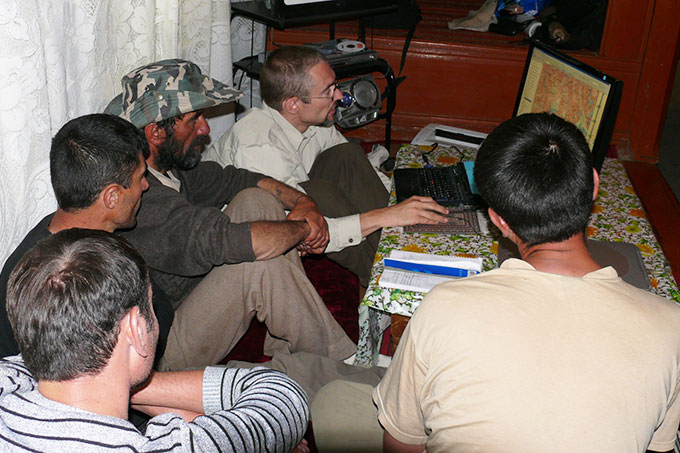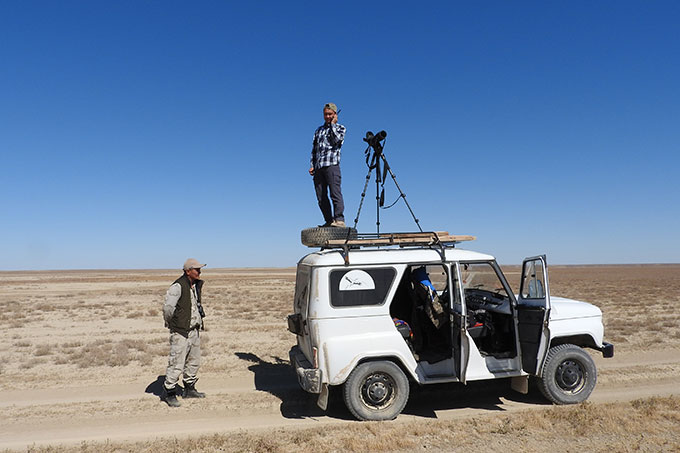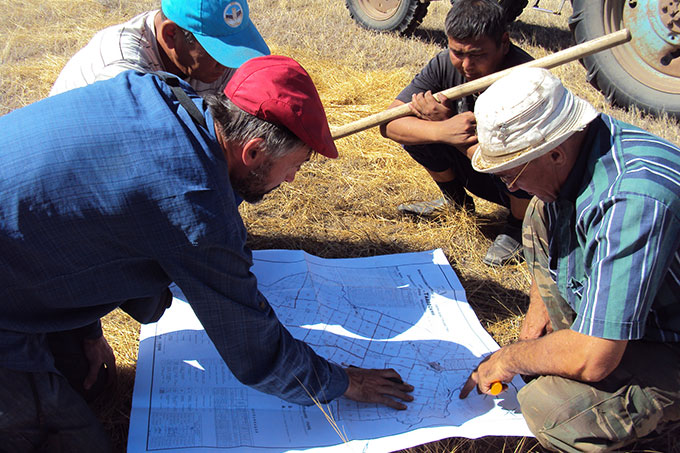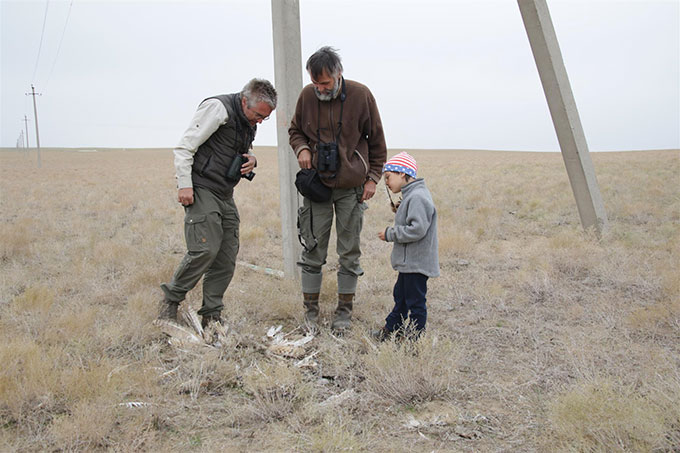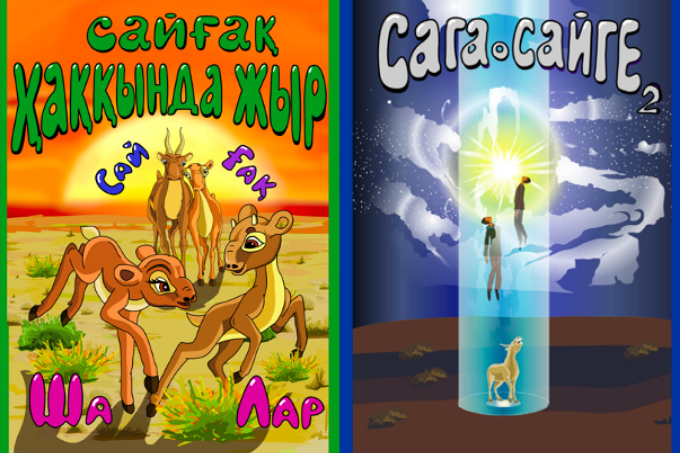Stefan Michel with community representatives, looking at maps for the community-based conservation of mountain ungulates in Tajikistan - photo: archive of National Voluntary Expert Group on Eurasia
National Voluntary Expert Group on Eurasia
Working for nature conservation and science in Eastern Europe and Central Asia
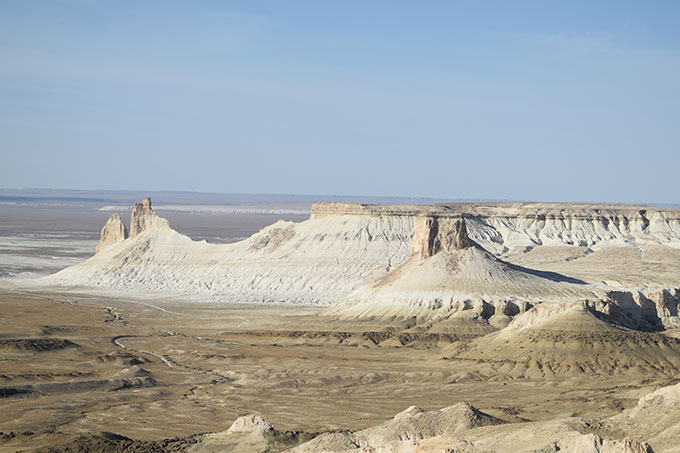
The landscape of the Ustyurt Plateau in Kazakhstan is characterized by high chalk cliffs representing different shorelines of the former Tethys Ocean, which existed here until 50 million years ago. One objective of the National Voluntary Expert Group on Eurasia is to have the existing nature reserves designated as UNESCO world natural heritage sites; another is to boost community-based conservation of the saiga antelope. The picture shows the chalk cliffs of Borzhira in the Mangystau Region. - photo: Til Dieterich
Protecting biodiversity, especially the saiga antelope and mountain ungulates, is a major focus of our work in Central Asia. To protect these species we take a community-based approach, directly involving the local population in order to achieve lasting results. The sustainable use of ungulate species is of vital importance for the work of the Eurasia group; this ensures that the local population will derive long-term benefits from protecting the wild animals, creating momentum that will continue after the end of NABU’s campaign. Our work also includes environmental education. For example, a textbook, a comic and an animated film about saiga conservation have been developed, to make the population more aware of the protection of this species. Another key aim of this work has been to persuade young people not to spend their time poaching.
Better management of nature reserves and their designation as UNESCO world natural heritage sites is another important field of work, especially in Kazakhstan. In recent decades, the oil and gas industry has been pushing more and more to open up new areas for exploration. Ideally, national reserves should also have international conservation status, to help preserve valuable ecosystems for future generations.
Another important contribution made by the Eurasia group in the countries of the former Soviet Union in the past is the development of NGOs, e.g. organizations supporting NABU’s global efforts for the BirdLife network. As the Eurasia group sees it, strong local NGOs are crucial to achieving sustainable results in nature conservation. Despite the growing challenges of strengthening civil society in the countries of Central Asia, the Eurasia group remains committed to this fundamentally important task.
Get involved!
We are open to NABU members who care about the protection of biodiversity in the former Eastern bloc countries. Please get in touch with the spokespersons of the Eurasia group if you are interested in taking an active role.
-
-
Observing the saiga antelope from the roof of the off-road vehicle donated by NABU for community-based conservation of this species on the Ustyurt Plateau in Kazakhstan - photo: Stefan Michel
-
Til Dieterich meets local farmers to investigate a mass extinction event of saiga antelopes in the Ural population in 2011 - photo: Bibigul Sarsenova
-
Examining an owl killed by a power line in Kazakhstan - photo: Mark Pestov
Downloads
External Links
SCA – Saiga Conservation Alliance. NABU’s National Voluntary Expert Group on Eurasia is a member of this alliance: saiga-conservation.org
RELATED
The Saiga antelope had been near extinction in the past three decades. Intensive poaching had caused a population collapse. The species is now recovering due to a massive conservation effort. NABU supported this recovery with creative youth media. more →

